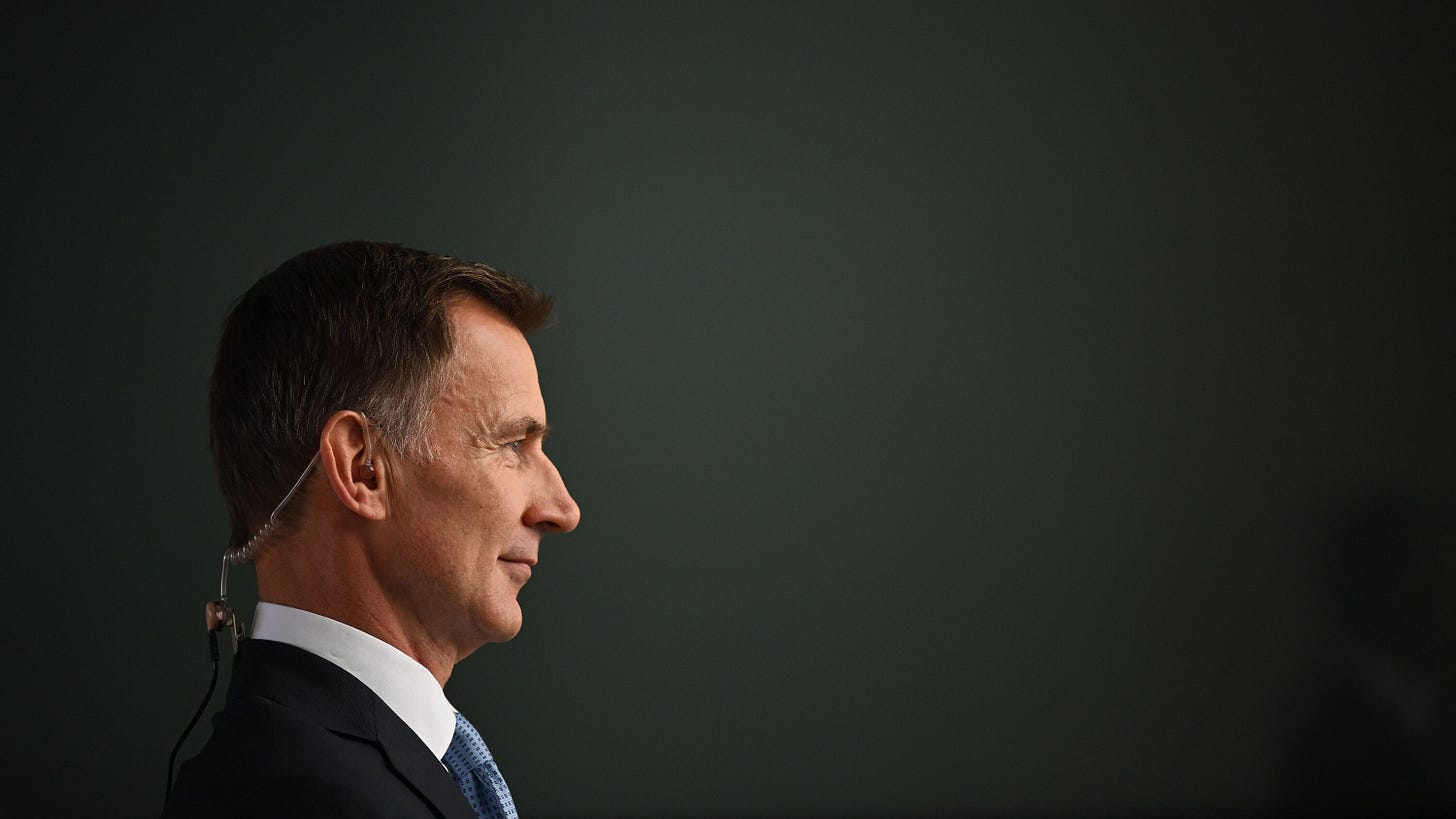The Tories are getting smashed on the economy
What the latest data tell us about the public mood on budget day
Matt Goodwin’s Substack goes to more than 57,100 subscribers from 167 countries around the world and thousands of paying supporters who support our work. Like our stuff? Then help us expand by becoming a paid supporter and access everything —the full archive, Live with Matt every Friday, exclusive posts, polling, leave comments, join the debate, get discounts, notice about events, and the knowledge you’re supporting independent writers who are pushing back against the grain. Join us on YouTube, Instagram, TikTok, Twitter/X and Facebook.
While I write a lot about the importance of cultural issues in politics -about people’s intense concern about what’s happening to their national culture, identity and sense of belonging, which they often feel are being rapidly eroded by the onslaught of globalisation, mass immigration, technocracy, and an indistinguishable political class- the bottom line is that, today, they’re mainly concerned about the economy.
Ask voters to name their most pressing priority today and they’ll almost always tell you it’s inflation and the spiralling cost-of-living. And they’re not just concerned about these issues. They are, as they told me at a recent focus group in the Red Wall, very scared, very anxious, and very worried about how they and their families are going to make ends meet. Increasingly, it feels as though the walls are closing in, where everything from the weekly shop to filling the car to the local council tax bill, is simply becoming unaffordable for many. And when they look at Left and Right, when they look at Westminster, they’re not really convinced anybody knows what to do.
This helps to explain why they’re so pessimistic about the state of the economy and the future of the country. In fact, in the polls, we’re now seeing levels of pessimism about the economy we’ve not seen since the Global Financial Crash erupted in 2008. We now live in a country in which more than six in ten of us are expecting the economy to ‘get worse’, where not even one-quarter, just 23 per cent, think things will ‘get better’ in the future. Almost all of us are fed up, almost all of us are angry, and almost all of us share a view that while the past was better than the present the future will almost certainly be even worse both for us and our families.
This kind of mood, this kind of despair, is utterly toxic for incumbent governments. Look around the world at all the elections that were held last year, against the backdrop of the Covid pandemic, rampant inflation and the spiralling cost-of-living and you’ll quickly see how devastating the politics of inflation can be for governing parties. From Sweden to Italy, from France to America, from Sri Lanka to Columbia, from Brazil to Liz Truss, politicians and parties who were in power when inflation kicked in have either been thrown out of office or, as is the case with the likes of Emmanuel Macron and Joe Biden, have been seriously weakened.
None of this should surprise us. If you look at what the research says about the political impact of inflation then it shows, clearly, that incumbents routinely get smashed at elections that follow. One recent study, for example, looked at nearly 60 ‘inflation shocks’ since 1970 and found there was a subsequent change of government nearly 60 per cent of the time. And when an election was held during or within two years of the initial inflation shock there was a change of government three-quarters of the time. In other words, if you’re in power when inflation kicks in then the deck is stacked against you holding power at the next election -no matter what you do.
This is why Budget Day, today, is important but might not really end up making much of a difference to the direction of politics in Britain which, like many of those other democracies around the world, is currently on course for a change of government in 2024. As I told a company in the City this week, while giving a presentation on the future of British politics, if you step back and look at what I call ‘the fundamentals’, what people actually think about these core, pressing economic issues, then the tide is now pushing firmly against Rishi Sunak, his chancellor Jeremy Hunt and the incumbent Conservative government. Here are five charts to show you what I mean.


